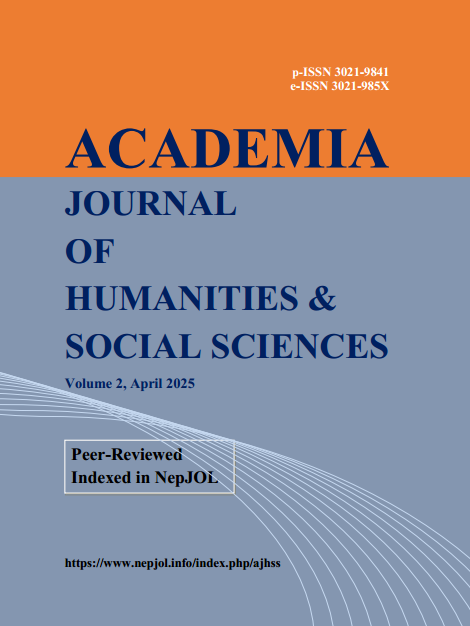Improving Student Retention in Higher Education Institutions: Evidences from Community Campuses of Nepal
DOI:
https://doi.org/10.3126/ajhss.v2i1.77156Keywords:
Community campuses, higher education, student retention, quality educationAbstract
This study examines and analyzes the various factors affecting student retention at Myagdi Multiple Campus (MMC), a semi-urban higher education institution in Nepal. Prior research on student retention has been predominantly focused on urban settings and developed countries. However, this study aims to fill this gap by exploring the factors influencing student retention in higher education institutions in the rural setting. A structured questionnaire was distributed to students through convenience sampling. The study is based on responses from 104 participants of MMC. Descriptive research design was used as the research method for quantitative analysis, and positivism was employed as the research paradigm. The theory of student engagement has been employed to highlight the crucial role of student involvement in academic and extracurricular activities in determining retention and success in higher education institutions. Statistical methods like correlation, regression, Cronbach’s alpha, Mean and SD were used to analyze the data and draw conclusions. The results indicate that quality education is the most significant factor of student retention. The findings of this study can be beneficial for researchers, policymakers, and educators in higher education institutions in the rural and semi-urban settings, providing valuable insights to improve student retention and ensure the sustainability of higher education in higher education institutions of rural areas of Nepal.





